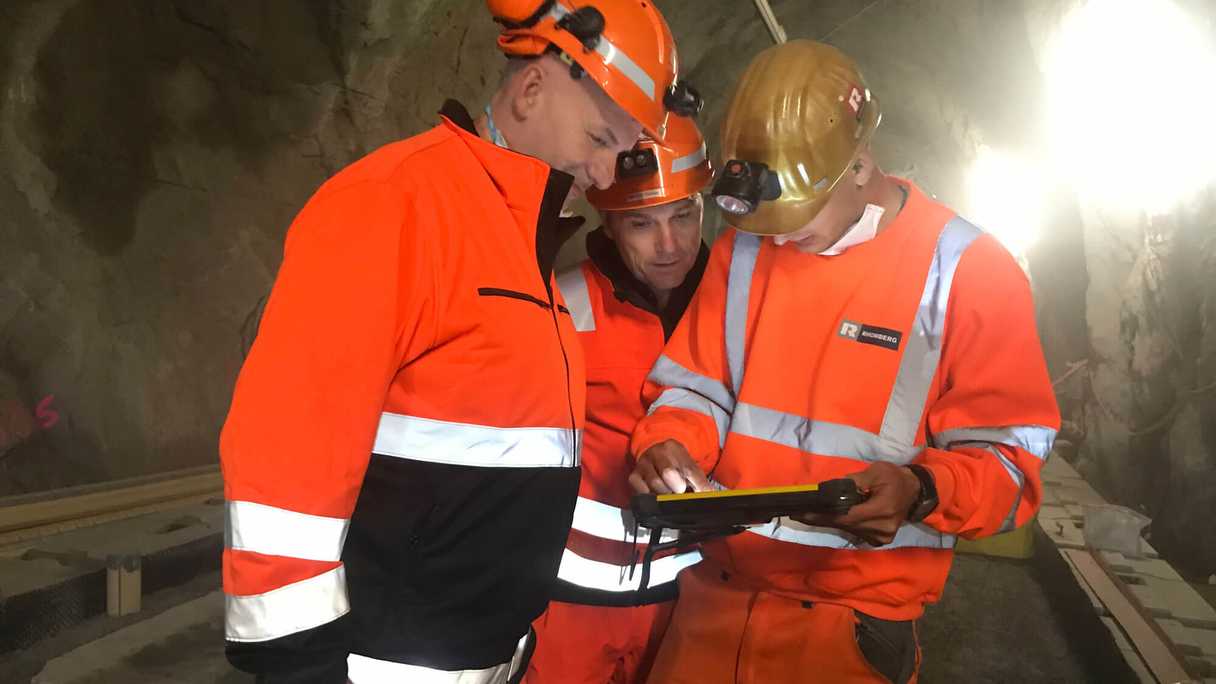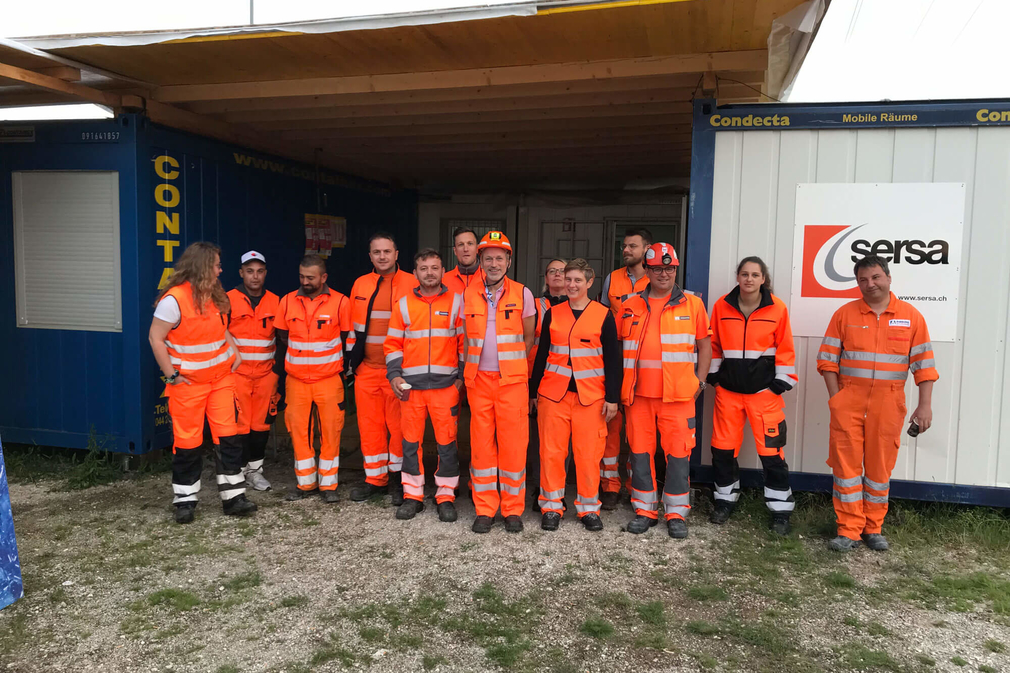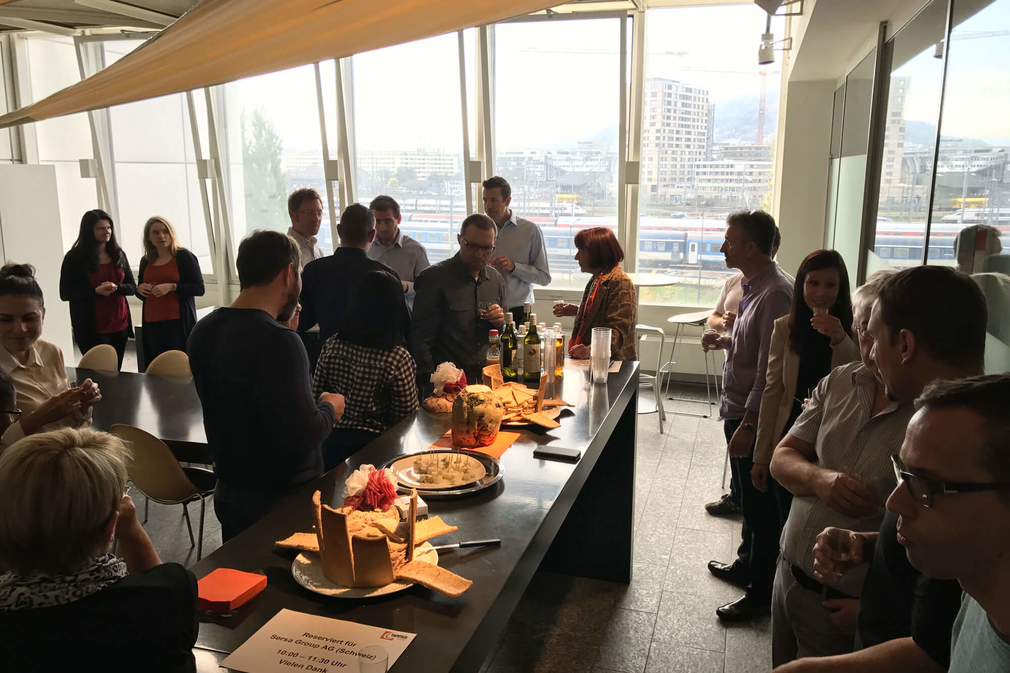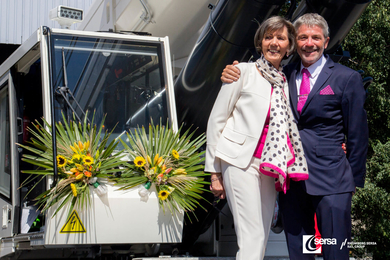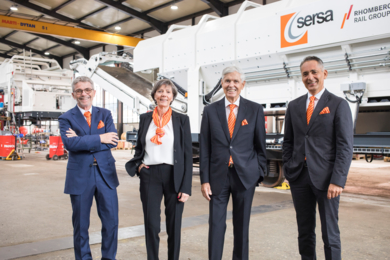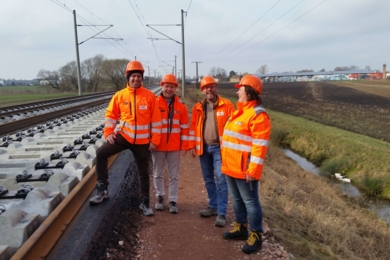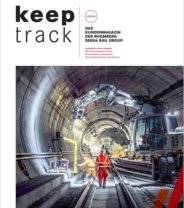10 Years of the Rhomberg Sersa Rail Group, as recounted by Christian Schreiber, Member of the Management Board of Sersa Group AG and Rhomberg Bahntechnik AG in the function “Member of the Executive Board Switzerland”; with the company since 1999.
I regarded the merger of Sersa and Rhomberg as fundamentally positive. In the beginning, the cultures were different. I recall an incident at InnoTrans 2012. That year we still had separate stands as the deal had been signed only three weeks before. At the Sersa stand, the people manning the stand had received a briefing by Konrad Schnyder in the morning about who would be coming, which clients were to be expected etc. If you went to the Rhomberg trade fair stand, the stand representatives were gradually trundling in. Since then, the good from both sides are taken to trade fairs.
Merging and mixing
When at the beginning of 2014 they were looking for someone to head a division at Sersa, Hubert Rhomberg said to me: “You can do this!” and I answered “OK, then I’ll do it”, and so I switched to Switzerland permanently.
Our colleagues first saw the advantage of the merger in 2012/13 with the Zurich cross-city line. We were involved in two constellations: Rhomberg Bahntechnik built the slab track and Sersa the overhead conductor rail. One of the suppliers for the overhead conductor rail was experiencing time difficulties. We allocated our internal resources differently and figured out how we could best solve this. This new possibility of finding solutions together in the group made it possible for us to complete projects successfully again and again in the following years. I recall a similar situation in 2016/2017 with the construction work in the Albis Tunnel.
Different service focus, different culture – the difference is disappearing
Because of the different service focuses of the two companies, we complemented each other well: Sersa with its capacity in rental and personnel provision, Rhomberg with project management. Since 2016, the market has clearly been developing in the direction of joint services, and the separation between Rhomberg and Sersa is increasingly disappearing.
The corporate cultures were just as different in the beginning as Hubert Rhomberg and Konrad Schnyder are as personalities. For us it has always been important that the two cultures co-exist and that mutual understanding is achieved. Both are necessary; sometimes even rules on how to cooperate are not a bad thing.
We are growing on each other - it’s the overall success that counts
The “growing on each other” can be seen very well in the area of resources. Let’s take the example of locomotives. In terms of economic activity, the logistics department is interested in keeping the utilisation of the locomotives high and selling them to external clients at good prices as early as possible. The project completion department, in contrast, is faced with the following challenge: Construction orders are often placed at very short notice, so that the resources required – including locomotives – are only called up from the logistics department at relatively short notice and at internal prices. So there are always arguments about this. What is needed in such cases are mutual understanding, weighing matters up and working around things. How do we go about reaching our optimal outcome? Experience has shown us that we are able to react better when we remain flexible, decide based on the situation and don’t block possible solutions through fixed rules. The awareness that it is necessary to support colleagues is important, even if I can’t optimise my own division or department 100%. Acting more like a football team, where it’s the overall success that counts, and not only individual success - that's what we're working on.
We are getting better and better at it - as the most recent large contract in Lucerne, among others, shows. Good solutions emerge when we are able to shift synergies into each other, when we understand our resources as a pool. In this way, we’re able to react well to market or project requirements and organise ourselves accordingly. The openness of colleagues to understanding the situation and finding solutions is decisive - even if the solutions are maybe not the obvious ones.
Appreciation is expressed outright
I have experienced many high points in these ten years - a special one for me personally was to receive the trust of the two owners in managing Sersa Group AG. I see the culture of appreciation in the group as essential for our success. Our owners exemplify this culture. They monitor the construction sites with great interest and always have appreciative comments when inspecting them. You really notice Konrad Schnyder’s happiness when something is going well. I think our owners are also given a lot of respect for the fact that they don't just care about numbers when making decisions, but that it’s the sustainability of the decisions that matters.
Money plays a subordinate role in 2032
My vision for the year 2032: Price discussions are a thing of the past. The question of “how can it be done most economically” is replaced with “what is the most resource-efficient way of doing it”. In 2032, the client’s question will be: “Does the enterprise have the competence and experience to complete a construction site at the right time and to the desired quality and with its own resources or those available to it?”. Money plays a subordinate role - in the sense that a fair and adequate price is paid for good performance. Alliance models play a significant part.
